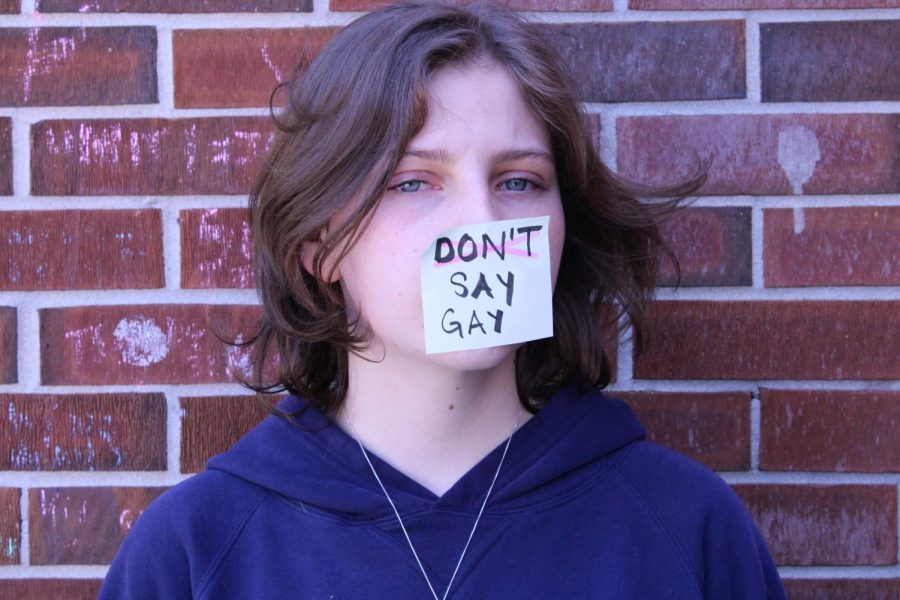“Don’t Say Gay”: The affects in Florida and more anti-LGBTQ+ legislation
With new anti-LGBTQ+ legislation across the country shocking the community, people become determined to “say gay”, doing everything they can to bring awareness to the hate they suffer. A majority of social media influencers fight against hate. Major companies are constantly under fire by these influencers, like Disney, because they don’t fully condemn the laws, yet wish to remain inclusive in their staffing and filmmaking. Another example of a big name that cripples her own trustworthiness, award-winning JK Rowling, the famous writer of Harry Potter, has shared her unpopular opinion of trans people as a whole.
April 18, 2022
Florida’s HB 1557 signed into law on March 28, 2022 discontinues talk of sexuality and gender identity within the classroom, causing outrage within Florida’s queer community along with the rest of the country.
The bill, introduced by Florida state representative Joe Harding, states that teachers or paid instructors can not speak to K-3 students in any way about gender identity or sexuality during school hours. They reason this saying that these students, without the ability to understand, should not be spoken to about any LGBTQ+ topics.
Retaliation across the state came from both the teacher and student side. An anonymous teacher released a letter claiming that, in accordance with the new law, the teacher will no longer use gendered pronouns for their students, and students will refer to them as “Mx.” Merriam-Webster defines malicious compliance as “the behavior of a person who intentionally inflicts harm by strictly following the orders of management or following legal compulsions”. This teacher exemplifies the characteristics of this definition by not speaking of sexuality and gender identity, yet not complying with the gender “norm” of male and female.
Students across the state peacefully protested with walkouts, with the main one at Winter Park High School in Orange County, March 7, 2022. Will Larkins, a student at Winter Park, not only organized and led the walkout, but informed students of Stonewall, a protest in the late 60s where queer people from all over New York demonstrated over a police raid at Stonewall Inn in Greenwich Village.
“We wanted to get the attention of our representatives, our senators, because the point is to show them that we are the ones in power. The people are the ones in power and what they’re doing doesn’t represent us, especially marginalized groups,” Will Larkins said.
Georgia held a retreat earlier this year to pass or void bills that required attention, and an act came to the table. Spearheaded by 10 republican state senators, the Common Humanity in Private Education Act explains that talk of sexual orientation at private schools (run by private organizations, such as churches) shouldn’t happen, because of younger students, once again, inability to understand such topics.
The act did not pass, due to the fact that the deadline for signing bills or acts into law would happen too soon, with the government retreat ending in the next week.
One of the Republican sponsors, Burt Jones, said he supported the bill because of the clear message stating that “no teacher should be promoting gender identity discussions with small children in a classroom setting”.
A different bill, introduced at their government retreat this year, became passed, allowing the Georgia High School Association to ban transgender boys and girls from playing on their schools public teams that matched their chosen gender identity. Oklahoma passed a near-identical bill, making this a chain of laws across the country blatantly banning talk of the LGBTQ+ community, and destroying any chance of trans kids from playing the sports they love.
“It’s terrible how this is happening, for now it’s been targeted towards private schools but soon it’ll be the public school system, and who knows what’ll happen,” junior Sebastian Kain Hairston said.




